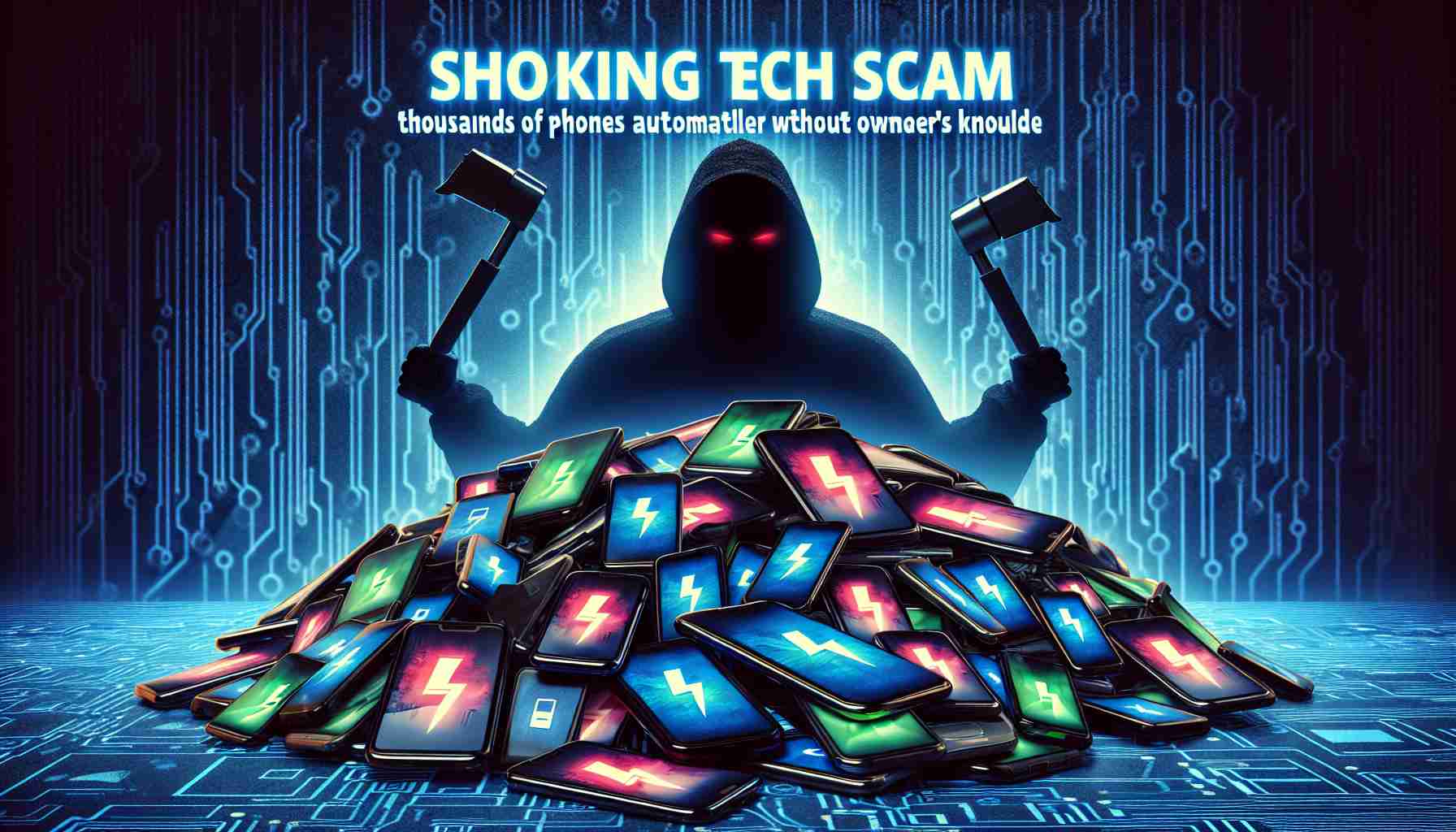A startling revelation has emerged, captivating public attention as it climbed trending topics: nearly a million mobile phones across the country have been covertly charged monthly fees. It was discovered that unsuspecting users, primarily seniors using basic phones, were automatically subscribed to additional services without their consent.
The scandal was unearthed when elderly users in Changzhou City, Jiangsu Province, reported unexplained charges on their phones. Investigation by local police revealed that these phones were being remotely controlled by a server located in Shenzhen, which caused the automatic subscription to costly services. Shockingly, it was found that 980,000 phones nationwide were affected, with related charges reaching 3.47 million yuan.
Authorities traced the server to a man named Zhang Weisheng. Originally in the mobile service business, he had purchased a code online capable of embedding itself into feature phones. Once embedded, the code allowed the devices to receive remote instructions, enabling covert billing without user approval. Zhang collaborated with various tech partners, including a software company and a mobile component firm, to expand the scheme.
In early 2023, Zhang and his accomplices were apprehended by the local police for illegal computer system control. Following an examination, prosecutors redefined the charges, emphasizing theft as the primary offense. By early 2024, Zhang received a twelve-year prison sentence, and his co-conspirators were punished accordingly. The case has shed light on vulnerabilities in simple mobile phone systems, prompting discussions on improving consumer protection measures.
Are Your Devices Spying on You? Rising Concerns in the Age of Smart Technology
In today’s ever-evolving digital landscape, the recent scandal involving the covert imposition of charges on nearly a million mobile phones in China has cast a spotlight on a larger issue: our deepening vulnerability to hidden technological threats. While this revelation primarily concerned seniors and basic mobile phones, it underlines important implications for how technology can both serve and betray its users.
The Unknown Threat of Everyday Devices
The exploitation discovered in China is not an isolated event but rather a symptom of a burgeoning issue within our increasingly smart world. From mobile phones to smart home systems, these devices are often controlled by complex software that, if manipulated, can turn against their owners without their knowledge.
Living in a World of Code
As more household items are integrated with internet connectivity, they potentially become targets for unscrupulous elements. Consider the widespread usage of smart TVs, home assistants, and even smart refrigerators. Each innovation opens pathways to convenience but simultaneously creates vulnerabilities for potential exploitation.
Advantages and Disadvantages
The shift towards more interconnected devices comes with notable benefits. Convenience and efficiency are significant motivators; smart devices can adapt to consumer schedules, automate mundane tasks, and even save energy. However, these advantages are accompanied by risks:
– Advantage: Enhanced convenience and potential energy savings.
– Disadvantage: Increased privacy concerns and potential for data exploitation.
This balancing act between innovation and security is a constant challenge as technology continues to develop at a breakneck pace.
Controversies and Questions
Could this be the tip of the iceberg? If basic phones were compromised, how secure are the more sophisticated devices that handle more of our personal data? These questions fuel ongoing debates about the priorities of manufacturers: should they focus more heavily on security and user protection than sheer technological advancement?
What role should governments play in protecting consumers? Many argue for stricter regulations and mandatory security standards for newly released devices to prevent such incidents from recurring on a larger scale.
Prevention and Protection
While industry regulations are crucial, individual vigilance is equally important. Users can take proactive measures to safeguard their devices:
– Regularly update software and firmware to patch any security loopholes.
– Use multi-factor authentication for added security layers.
– Stay informed about data privacy settings and permissions.
What Lies Ahead?
The increasing need for stringent consumer protection laws becomes evident as technology becomes ingrained in every facet of life. Countries across the globe are confronted with the challenge to implement robust security protocols that protect their citizens without stifling technological growth.
These incidents call for a reassessment of our relationship with technology. Could rethinking our reliance and setting boundaries create a safer digital ecosystem?
For ongoing insights into technological security and consumer protection, you may visit websites such as Wired or The Verge for up-to-date information.
In navigating the modern digital world, awareness and proactive engagement are essential, both at an individual level and within the broader regulatory landscape. Only then can we hope to truly benefit from the wonders of technology without succumbing to its potential pitfalls.























